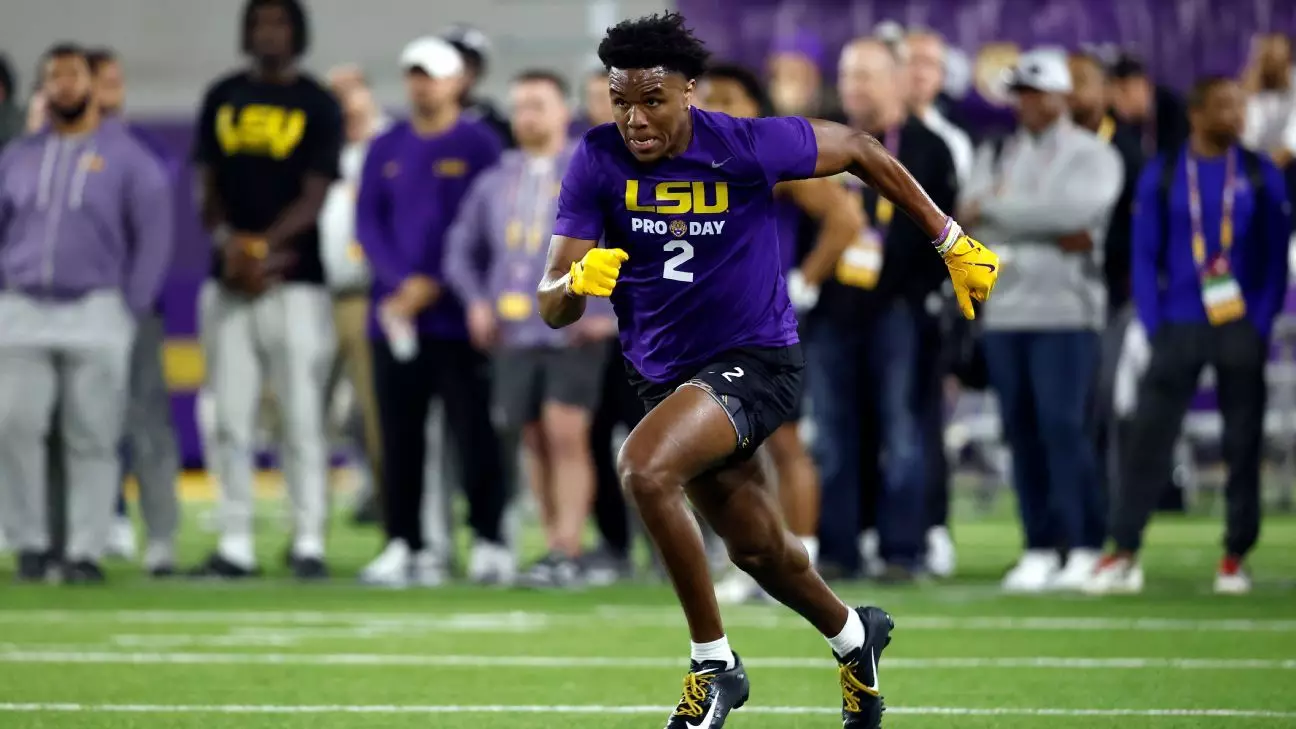In a tragic turn of events that shook the sports community, former LSU football player Kyren Lacy was found dead in Houston under distressing circumstances, as reported by the Harris County Sheriff’s Office following a series of tumultuous incidents over the weekend. At just 24 years of age, Lacy’s untimely demise not only ended a promising football career but also highlighted pressing issues surrounding mental health and the severe consequences it can instigate. The young athlete was reportedly involved in a confrontation during which he fired a gun into the ground, escalating into a situation that led to his death from an apparent self-inflicted gunshot wound as police attempted to reach him.
Lacy’s death encapsulates a deep-seated issue often ignored in the spotlight of sports: the mental health struggles faced by athletes, particularly those under immense public scrutiny and personal turmoil. The chaotic events preceding his death reveal an alarming narrative that extends beyond sports, affecting anyone grappling with their own internal battles.
The Fallout from Tragedy
While the circumstances of the young athlete’s death are certainly tragic, they are not isolated. Over the past few years, a disconcerting number of athletes have succumbed to their struggles, raising questions about the support systems available to them. In Lacy’s case, his family and attorneys expressed a deep concern for his mental state, urging society to commit to better mental health awareness. Kenny Lacy, Kyren’s father, took to social media, advocating for a serious examination of mental health among the youth, urging parents to prioritize their children’s emotional well-being. This father’s heartfelt call emphasizes the need for open discussions around mental health, especially in environments that can often become excessively competitive and high-pressure.
Lacy had been grappling with significant personal issues, including criminal charges that stemmed from a tragic car accident in December, where he reportedly fled the scene after causing a fatality. The accumulated stress of impending legal ramifications could contribute significantly to mental distress. It raises the question of how athletes are supported during personal crises and whether they have access to adequate mental health resources, especially at pivotal moments in their careers.
Cascading Impact on the Community
The community’s response to Lacy’s tragic death serves as an essential moment for reflection. LSU and various football organizations released statements of condolence, expressing sadness over the loss of someone who once inspired many through his talent on the field. However, the outpouring of grief must translate into actionable steps. As highlighted by Lacy’s attorney, there is an urgent need to allow grieving families the space and time they require while also advocating for a shift in how society perceives mental health.
From the safety of the sidelines to the safety of their own homes, athletes are often inundated with pressures that compound their mental health issues. Lacy’s attorney mentioned the potential for a declination of charges, indicating a belief in his innocence regarding the accident’s serious implications, yet these legal battles can be extremely taxing on one’s mental health, adding layers of complexity to already challenging situations.
The Role of Sports Organizations
This incident prompts a crucial dialogue about the responsibility of sports organizations to ensure that athletes are not merely viewed as warriors on the field, but as human beings who experience fear, doubt, and despair. Leagues and educational institutions must put in place comprehensive mental health programs that provide resources for athletes struggling not just with physical injuries, but with emotional and psychological issues that can often go unnoticed until it’s too late.
Engagements in mentorship programs, early intervention strategies, and consistent availability of mental health professionals could go a long way in preventing tragedy. Encouraging athletes to share their struggles and creating environments where it is acceptable to seek help could very well change the narrative surrounding mental health in sports.
Ultimately, Kyren Lacy’s passing is not just a personal tragedy, but a societal wake-up call that brings with it the responsibility to protect current and future generations of athletes from the struggles that ultimately claimed his life. Secure in our shared humanity, we must foster dialogues that recognize and address the multifaceted issues surrounding athlete mental health in today’s increasingly fraught society.


Leave a Reply